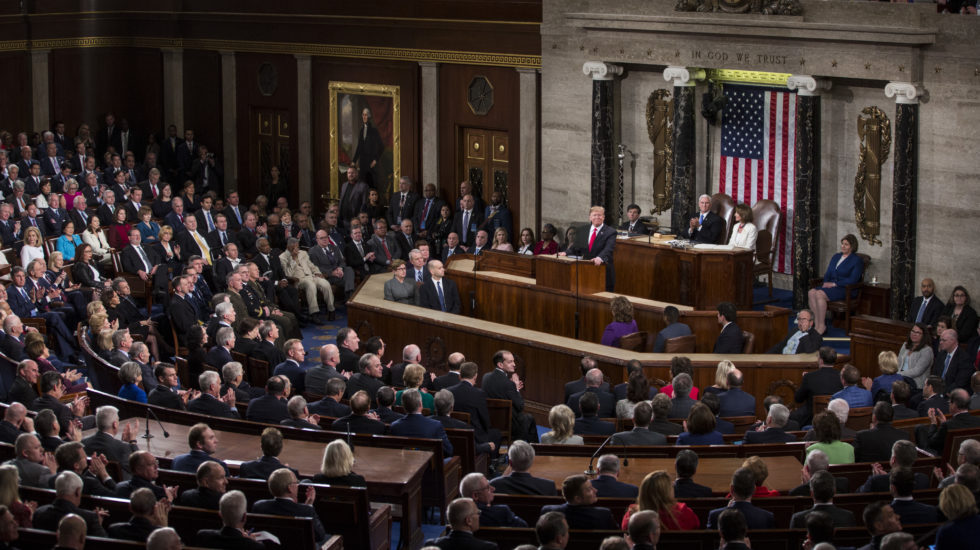Who are we? Are we the country that elected President Obama or President Trump? Are we a nation frightened by change or invigorated by it? Do we embrace our diversity or do we huddle in our tribal cliques? Do we see in this president a fearless and inspiring leader or a mistake of historic proportions?
The answers to all of these questions lie in the eye of the beholder. We are a complicated and increasingly segmented society, and when we go to the polls in November 2020 to choose a path forward, that decision will not only shape our current moment in history but likely echo across the decades ahead, not only in the United States but throughout our global community.
There is a sense in some quarters, I fear, that this president is so wounded and battered and – in the minds of his critics – so unfit for office that his fate as a one-termer is now preordained. Those in this camp who were able to stomach watching the State of the Union saw much of what they loathed about the man on full display.
We know, however, that President Trump also has a loyal base who loved what they saw. The question hanging over 2020 is what will the electorate look like. Will there be enough voters in the President’s camp, or open or apathetic enough to be swayed to vote for him, to squeak out another narrow victory?
I know what the polls say. And while most president’s enter their re-election campaign as presumptive favorites considering historic trends, I do believe that President Trump does not. But I also do not know how the chips will eventually fall.
In thinking more about President Trump’s State of the Union, my judgement about its tone and content hasn’t changed. But I also think it should be a wake-up call for any complacent Democrat and all others who oppose him. It may have been Trump’s most effective speech of his Presidency. I know, I know; many people will read that as damning with very faint praise. The speech got scathing reviews from many political observers, including this one. But from Trump’s standpoint and for his purposes – foremost being, survival in office and viability for re-election – it might be more effective than people are giving it credit. Republicans seemed to love it, and that probably includes the many voters who lean Republican but sometimes vote Democratic. As for the truly independents, who may be appalled at Trump’s personality, character, style, and some of his policies but like some of what they think he has done (being good for the economy is one issue that polls well for him), it might have resonated as well.
What is a matter of big debate is how many voters there are that fall in the above camps as opposed to those who helped elect Democrats in a landslide midterm election. How fast are demographics shifting? How much will President Trump hold on to his 2016 voters? Are there any crackings in his base?
But we cannot forget President Trump’s surprising path to victory in 2016, even as we should also not ignore the lessons of 2018. As badly as a lot of people don’t want to hear it or don’t want to believe it, I think Trump used some themes in that speech that might have helped him. How much and for how long, we will find out. And in this crazy newscycle of scandal and the Russian investigation and the volatility of a continued recknowing on race and power and immigration and other contentious issues, this speech will be likely forgotten.
But in it I did see Trump’s strategy. He’s counting on Democrats and others who oppose him being lulled into believing that he can’t survive through his first term, and that even if he does, he can’t possibly win another election.
Maybe those people will ultimately be proven right. But, at this moment in history, there is danger for them in not recognizing that their beliefs are by no means certain to be fulfilled. Trump is down but he’s not out, and not necessarily on his way out. To think otherwise risks the trap of self-delusion. Complacency in the wake of what happened Tuesday night is a real and present danger for all opposed to Trump and what he represents.
I sense that people know this. I see resolve in Congressional action and a Democratic primary electorate who say electability is their primary litmus test. But these are concerns that should bear repeating, and remembering, lest they become destiny.
